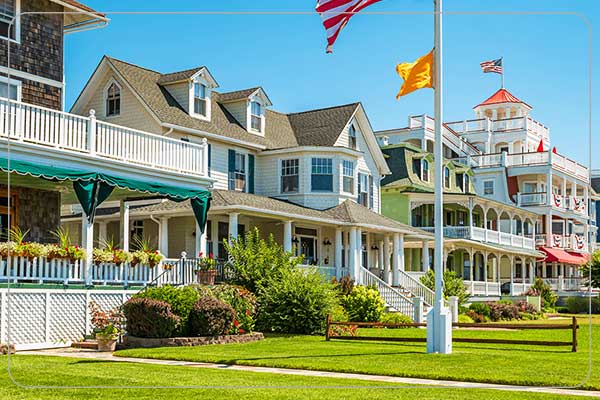Are you dreaming of making a profit by flipping houses in New Jersey? You’re not alone. With its diverse neighborhoods and booming real estate market, New Jersey is a goldmine for fix and flip investors. But before diving in, you need a winning strategy. In this comprehensive guide, we’ll walk you through everything you need to know about fix and flip houses in New Jersey, from understanding the market trends to navigating legal requirements and maximizing your profits.
What is Fix and Flip?
Fix and flip is the process of purchasing a distressed property, renovating it to increase its value, and selling it at a profit. It sounds simple, right? But the key to success lies in smart investments, strategic renovations, and timing the market.
Why New Jersey?
New Jersey offers a unique blend of high demand, diverse housing markets, and proximity to major metropolitan areas like New York City and Philadelphia. Here are some compelling reasons to invest in fix and flip properties in New Jersey:
- High Demand: Growing population and high demand for housing.
- Diverse Market: Urban, suburban, and coastal areas provide a variety of investment opportunities.
- Profit Potential: Competitive housing prices and appreciation rates allow for lucrative flips.
1. Understanding the New Jersey Real Estate Market
To succeed in flipping houses, you must understand the local market. New Jersey’s real estate landscape is dynamic, with each city offering unique opportunities and challenges.
Key Areas for Fix and Flip:
- Jersey City: Proximity to NYC with a growing young professional population.
- Newark: Affordable properties with potential for high returns.
- Hoboken: High demand and premium prices.
- Camden: Emerging market with growth potential.
Market Trends to Watch:
- Property Appreciation Rates: Monitor yearly growth to predict future gains.
- Buyer Demographics: Young professionals, families, and retirees have different housing needs.
- Neighborhood Developments: New infrastructure or businesses can boost property values.
2. Finding the Right Property: A Strategic Approach
Not every property is suitable for flipping. Here’s how to find a profitable one:
What to Look For:
- Distressed Properties: Homes in need of renovation but structurally sound.
- Foreclosures and Auctions: Often sold below market value.
- Off-Market Deals: Direct negotiations with homeowners for better prices.
How to Find Them:
- MLS Listings: Access through a real estate agent.
- Networking: Connect with local wholesalers, contractors, and agents.
- Online Platforms: Sites like Zillow, Redfin, and auction websites.
Property Evaluation Checklist:
- Location: Is it in a desirable neighborhood?
- Condition: Can renovations increase value significantly?
- Market Value: Compare with recently sold properties in the area.
- Costs: Calculate purchase, renovation, and holding costs.
3. Financing Your Fix and Flip: Options and Costs
Flipping houses requires capital. Here are the best financing options for New Jersey investors:
Types of Financing:
- Hard Money Loans: Short-term, high-interest loans ideal for quick flips.
- Private Lenders: Investors looking for high returns.
- Traditional Mortgages: Lower interest rates but stricter approval criteria.
- Home Equity Loans: Using equity from another property.
Cost Comparison Table:
| Financing Type | Interest Rate | Approval Time | Best For |
|---|---|---|---|
| Hard Money Loan | 8% – 15% | Fast (7 days) | Short-term flips, quick buying |
| Private Lender | 6% – 12% | Moderate | Flexible terms, high-end flips |
| Traditional Mortgage | 3% – 6% | Slow (30-45 days) | Long-term investors |
| Home Equity Loan | 4% – 7% | Moderate | Using existing property equity |
Pro Tip: Hard money loans are popular among fix and flip investors for their speed and flexibility despite higher interest rates.

🏡 Dreaming of the Perfect Property in the U.S.? We’ve Got You Covered! 🇺🇸
Looking for prime real estate deals in the United States? Whether it’s land, an apartment, or a luxury villa, your dream property is just a step away!
🔹 Meet Silva – Your Trusted Real Estate Consultant!
With 15+ years of experience in the U.S. real estate market, Silva knows exactly how to find the best homes and investment opportunities tailored to your needs.
📞 Don’t wait! Contact Silva today and secure your ideal property before it’s gone!
4. The Renovation Strategy: Adding Maximum Value
Renovations can make or break your flip. Focus on cost-effective upgrades that significantly increase the property’s value.
Key Renovation Areas:
- Kitchen Remodels: Modern cabinets, countertops, and appliances.
- Bathroom Upgrades: Stylish tiles, new fixtures, and lighting.
- Curb Appeal: Landscaping, new paint, and upgraded doors.
- Energy Efficiency: Windows, insulation, and smart home features.
Budgeting Tips:
- Allocate 20-30% of the property’s purchase price for renovations.
- Prioritize renovations that provide the highest ROI.
- Use local contractors familiar with New Jersey regulations.
5. Navigating Legal and Regulatory Requirements
New Jersey has specific regulations for property renovations and sales. Avoid costly mistakes by ensuring compliance with:
Required Permits:
- Building Permits: For structural changes.
- Electrical and Plumbing Permits: For system upgrades.
- Inspection Requirements: Final inspection before selling.
Legal Considerations:
- Property Disclosure Laws: Inform buyers of known issues.
- Zoning Laws: Ensure renovations comply with local zoning codes.
External Link for Reference:
New Jersey Department of Community Affairs – Comprehensive information on building codes and permits.
6. Selling the Flipped House: Maximizing Profit
Selling fast at the highest price requires strategic marketing. Here’s how to do it:
Effective Marketing Techniques:
- Professional Staging: Makes the property more appealing.
- High-Quality Photos and Videos: Attracts more potential buyers.
- Social Media Advertising: Reach targeted buyers quickly.
Pricing Strategy:
- Competitive Pricing: Analyze comparable properties (comps).
- Bidding Wars: List slightly below market value to create urgency.
- Seasonal Timing: Spring and summer are peak buying seasons.
7. Profit Calculation: Is Your Flip Worth It?
Calculate your profit using the 70% Rule:
- Maximum Purchase Price = (After Repair Value x 70%) – Repair Costs
Example Calculation:
| Description | Cost ($) |
|---|---|
| After Repair Value | 400,000 |
| Repair Costs | 60,000 |
| Maximum Purchase Price | (400,000 x 0.7) – 60,000 = 220,000 |
This ensures a 30% profit margin after all expenses.
Conclusion: Ready to Fix and Flip in New Jersey?
Flipping houses in New Jersey can be highly profitable if done strategically. By understanding the market, choosing the right property, securing smart financing, and executing value-adding renovations, you can maximize your profits.
Are you ready to take the plunge? Start your journey today by researching properties, building a reliable team, and creating a solid investment plan. Happy flipping!
Call to Action: Get Started Today!
Interested in learning more? Contact us today for expert guidance on fixing and flipping houses in New Jersey. Don’t wait—the best deals go fast!
Ready to Flip?
If you’re ready to dive into New Jersey’s fix and flip market, use this guide to maximize your profits. Remember, the key to success is strategic planning, smart investments, and timing the market. Good luck and happy flipping!





